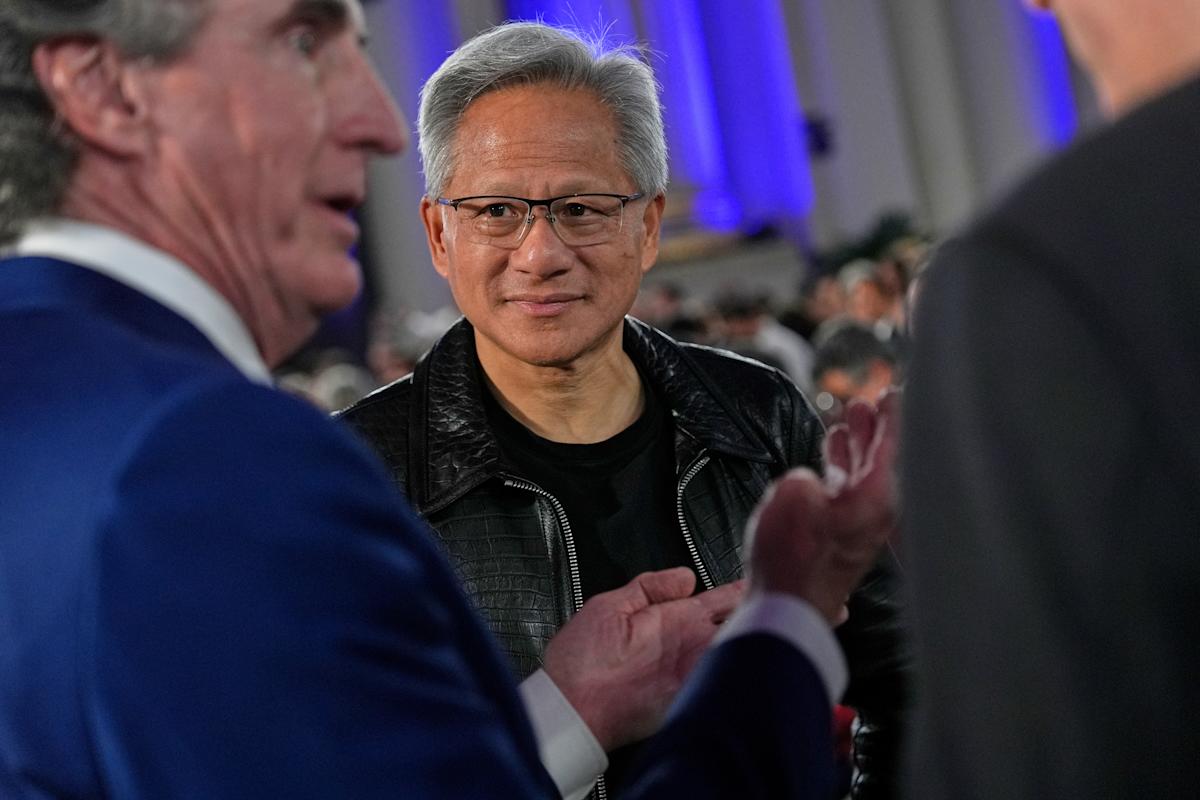When Nvidia CEO Jensen Huang revealed Friday that the company is working with the Trump administration on a new computer chip designed for sale to China, it marked the latest chapter in a long-running debate over how the U.S. should compete with China’s technological ambitions.
The reasoning has sometimes changed — with U.S. officials citing national security, human rights or purely economic competition — but the tool has been the same: export controls, or the threat of them.
Nvidia believes it can eventually reap $50 billion from artificial intelligence chip sales in China. But it so far has been held back by restrictions imposed by President Joe Biden’s administration and then reinforced by President Donald Trump before negotiating a quid pro quo deal.
How did these chip export controls start?
China has its own chip foundries, but they have historically supplied only low-end processors used in autos and appliances. Beginning in 2014, the Chinese government tried to change that with a new “Big Fund” that invested huge amounts of money into hundreds of semiconductor companies.
Meanwhile, the U.S. government, starting in Trump’s first term, began cutting off China’s access to a growing array of tools to make chips for computer servers, artificial intelligence and other advanced applications.
China was particularly irked when it was blocked from buying a machine available only from a Dutch company, ASML, that uses ultraviolet light to etch circuits into silicon chips. The restrictions stalled Chinese efforts to make transistors faster and more efficient by packing them more closely together on fingernail-size slivers.
Chinese telecommunications giant Huawei became the public face of the trade tensions, with U.S. claims of its products’ potential use for espionage a backdrop for a broader struggle for economic and technological dominance.
“We don’t want their equipment in the United States because they spy on us,” Trump said in 2020 as the administration tightened restrictions to block Huawei from accessing chip technology, at the same time as he was threatening to ban TikTok on similar grounds.
Biden ups the ante on chip restrictions
President Joe Biden maintained those restrictions after taking office in 2021, but also ramped them up with a series of export controls that blocked sending to China the world’s most advanced chips and factory equipment.
That affected Chinese sales for California chipmaker Nvidia, the leading designer of the specialized chips needed for artificial intelligence technology.
After the first restrictions took effect in 2022, blocking chips including Nvidia’s H100, the company designed a new kind of chip that was not quite advanced enough to meet the threshold for restrictions.
Story Continues
